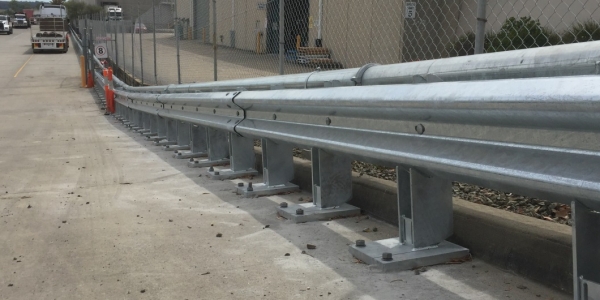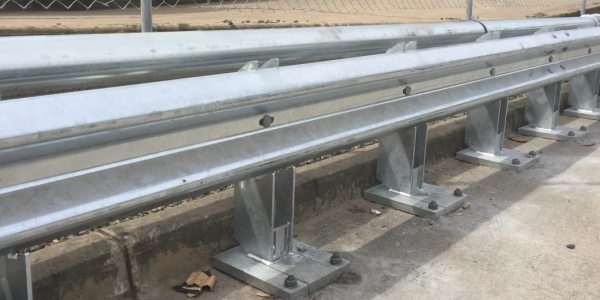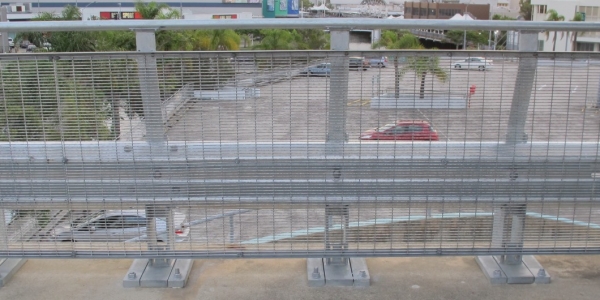How Rhino-Stop® 240 Heavy Duty Works
The defining features of Rhino-Stop® guardrail posts are the long cuts in the base plate which essentially break the plate into three fingers connected by a common stem.
The fingers allow the mounting of the post to occur in an upright fashion by enabling a separation from the anchor(s).
Rhino-Stop® 240 carpark barrier incorporates a unique patented yielding base plate that minimises the peak loads transferred to post anchors.
These base plates effectively absorb the kinetic energy of an impacting vehicle, reducing the forces transferred through the anchor bolts to prevent concrete substrate damage.
Upon impact from a vehicle or heavy load, a plastic hinge forms at the location where the fingers can be found on the post.
Once the post is mounted, a backward rotation is set into motion, as the load capacity of the plastic hinge is designed to be less than the pull-out capacity of the anchor bolt.
The deflection of the system allows for greater load transfer to adjacent posts, thereby sharing the impact load from the vehicle – providing the highest level of protection from high speed impacts.
All Rhino-Stop® barriers are designed, manufactured and tested to comply with Australian and international Industry Standards. Safe Direction’s Rhino-Stop® 240 barrier system has been crash-test validated at impact speeds and loads well in excess of those specified in AS/NZS 1170.
Rhino-Stop® 240 meets the requirements for off-street car park parking facilities stipulated in AS/NZS 2890.1 and can contain up to 64 KJ of impact energy, demonstrating compliance with impact load structural design actions for end of ramp locations.
For more information on our Rhino-Stop® 240 carpark barrier system, get in touch with Safe Direction today on 1300 063 220.





